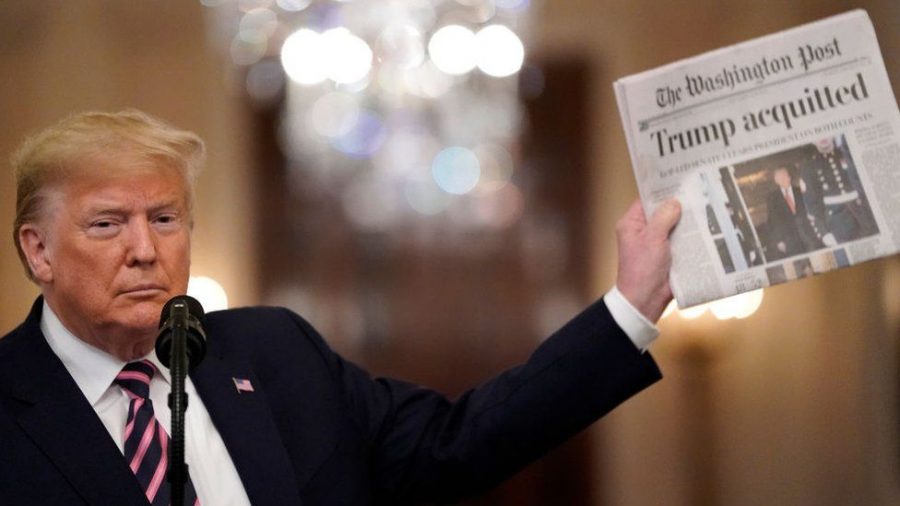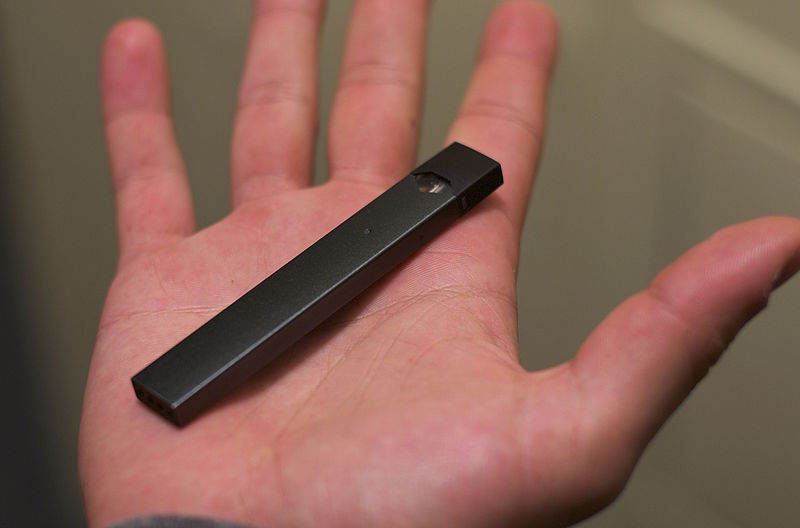The implementation of the new cell phone policy, which bars students from utilizing cell phones during the school day, has drastically impacted school culture. The policy, put into effect at the August board meeting, has been much more detrimental than beneficial to student education.
Personal responsibility is not gained by implementing strict rules. It is gained by allowing students to make responsible decisions regarding their quality of education instead of teaching them to follow orders and allow others to dictate the way they learn. Although students’ brains are not fully developed at a high school age, it should be up to a student whether they complete their schoolwork and use their phone for educational purposes, or spend their school day focused on their cell phone instead of their classes. Students will make their own decisions – even with the cell phone ban, students who truly do not have any desire to learn will find other ways to evade the rules, and that is their choice to make.
Although the cell phone policy is well-intentioned and the school board had their reasons for implementing it, banning cell phones does not teach teenagers valuable life skills. Future workplaces will expect that their employees prioritize their work over their ringtone, something high school students must learn. Students interpret the policy as control, not guidance. Prohibiting the use of personal devices only fuels resentment and rebellion, rather than teaching students lessons they can carry beyond high school.
The cell phone policy, additionally, causes tension between students and their teachers, as teachers are not holding themselves or each other accountable to enforce the rules. Some teachers are more lenient with the cell phone policy, allowing students to have their phones out during free work time or not enforcing the rule when phones are out. Consequently, other teachers who are more firm with enforcing the policy are seen as unnecessarily strict.
Some teachers also seem to hold themselves to different standards, and will regularly use their cell phone during the school day, even while in classes. Teachers should be held to follow the same rules as their students. It is unfair that teachers are allowed to have their cell phones out while students are completely banned from using theirs.
This dynamic between students and teachers contributes to a sense of inequality, as teachers should do all they can to follow the same policy. Students who have different teachers with different ways of enforcing the phone policy can paint stricter teachers in a negative light, making them seem like the bad guys when they are simply following rules. Teachers who do allow phones in class can get in trouble with school administration, which places additional pressure on teachers whose classes require use of cell phones or platforms that are unavailable on our student laptops.
Additionally, the policy states that phones are not allowed during advisory, which has been reinforced by administration as the student’s personal time to complete work they deem necessary. The cell phone ban has taken away the student’s right to use their personal devices for whatever purpose they deem appropriate, which usually includes listening to music during their work time or using a calculator app or educational app. While it is understandable that phones are not allowed in classrooms and during lessons, to expand that influence to students’ personal work time is a hindrance of their own learning styles, and is a detriment to student productivity.
The cell phone policy does not take into account the fact that many cellular functions are helpful, and sometimes even necessary, for some students to be able to complete schoolwork efficiently.
Many students rely on music to drown out distractions during their independent work time. With the heavy restrictions on personal devices, students are encouraged to use school issued laptops to listen to music. The problem with this is the fact that the district has blocked every music streaming platform except for YouTube, which blocks any music considered explicit. Some students have said that they feel it takes more time to search through and find songs that aren’t blocked and skip through ads than it would be to start a playlist they have built on their phone.
With no access to music or other focus apps, students are left navigating disruptive classroom environments with little to no way to help them focus, and their quality (and enjoyment) of learning decreases dramatically.
This policy makes students who use their devices responsibly feel that they are being punished for irresponsible students’ behavior. While they are using their devices in the way they are intended to be used within school boundaries, they are still included in a policy meant to eliminate irresponsible usage. This also creates an ineffectual school environment, in which students who have always followed the rules are now being seemingly “punished” for something they are not guilty of.
With the school’s poor cell service, there are very few harmful things students can do on their cell phones, and with a majority of websites blocked on school issued laptops, students are at a major technological disadvantage. Websites that are used for educational purposes have been restricted. If students are not allowed to use their personal devices, they should, at the very least, be given less restricted access to laptops.
In order to better influence students’ judgment of responsibility, and to give them the freedom to conduct their education however they deem fit, with adherence to reasonable rules, this policy should be re-evaluated.


